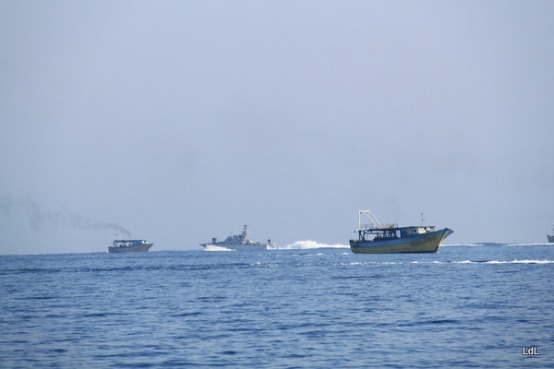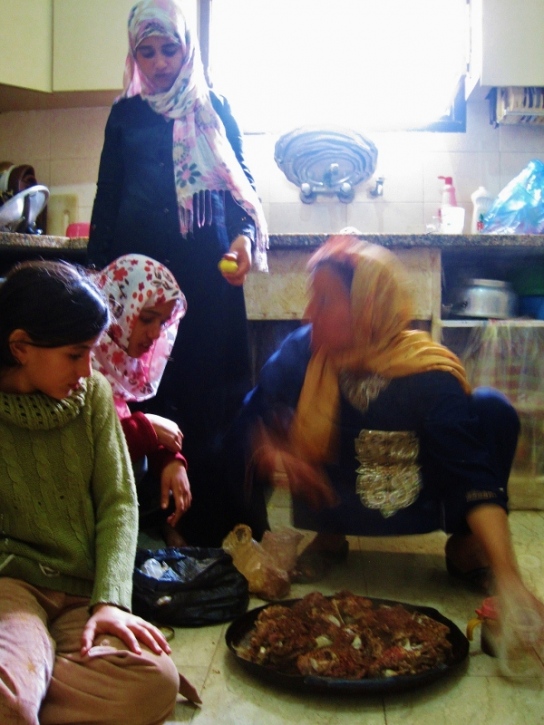Tag: Gaza
-
A day at sea with Gaza’s fishermen
by Lydia de Leeuw 26 November 2011 | A Second Glance
-
Thanksgiving in Gaza
by Radhika Sainath 25 November 2011 | Notes from Behind the Blockade It all started with a simple question from Jabar, a Palestinian farmer from Faraheen, during Eid al-Adha, the festival of sacrifice. “Is there an American eid (holiday) where you slaughter an animal?” he asked Nathan, a colleague here in Gaza, a few weeks…
-
Israeli navy hunts Gaza fishermen
24 November 2011 | International Solidarity Movement, Gaza Video of our international human rights observation boat outrunning the Israeli navy as it attempts to fire a watercannon on Palestinian fishing boats under 3 miles out to sea. Publicly, Israel ‘allows’ fishermen in Gaza 3 miles in which to make a living. Today, as happens on…


